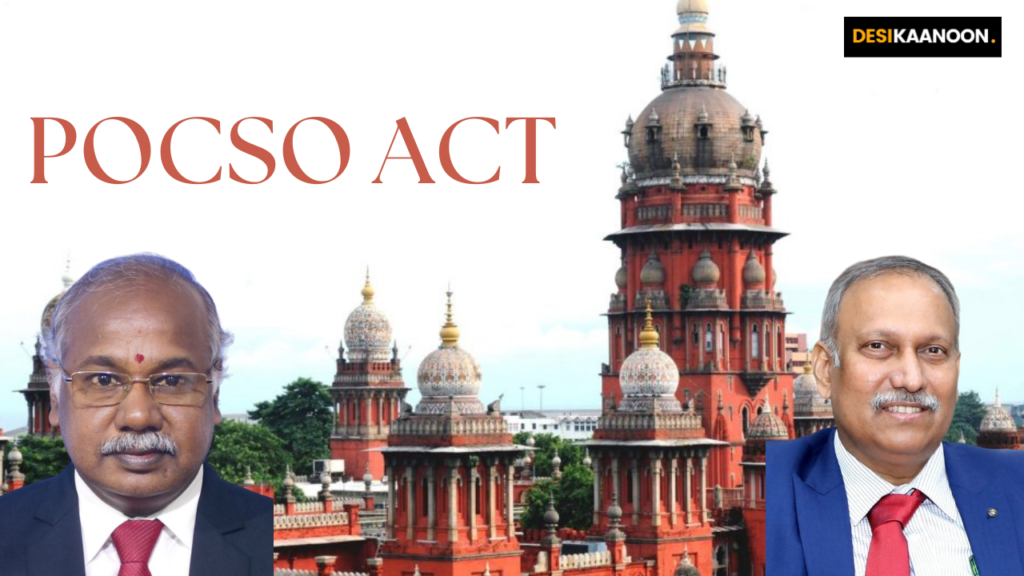Aastha Pareek
The Madras High Court has reaffirmed the crucial role of the press in reporting on matters of public interest while underscoring the need for law enforcement to focus on identifying the sources of leaks in sensitive cases. The court’s decision, issued on October 1, 2024, emphasizes that the police should pursue those responsible for leaking sensitive information in cases under the Protection of Children from Sexual Offences (POCSO) Act, rather than targeting journalists who report on such matters.
The court was hearing two petitions—one initiated suo motu by the Madras High Court itself, and another filed by the mother of a 10-year-old rape victim, both of which brought to light gross misconduct by the police in handling the case. The suo motu petition came in response to a letter sent by Advocate A.P. Suryaprakasam, who highlighted the serious allegations of police misconduct in a rape case involving a minor. The advocate pointed out that the victim’s parents were mistreated by the police, while the accused, allegedly with political connections, were allowed to evade justice for a significant period.
According to the family, the 10-year-old minor was sexually abused, and her parents were subjected to harassment and physical abuse at the hands of the police. The inspector at the All Women Police Station, Anna Nagar, allegedly recorded the minor’s statement late at night, in the common corridor of the hospital, without the presence of her mother. Additionally, the parents of the victim accused the police of attempting to force a compromise with the alleged perpetrator, who lived next door and was not immediately arrested.
The family’s ordeal worsened when their interaction with the police was recorded and circulated on social media, further compromising their safety and dignity. Despite the victim identifying her abuser on August 30, 2024, the police delayed the arrest of the accused until September 12, raising serious concerns about the handling of the case.
The police, in their defense, argued that they had acted in accordance with the law. They claimed that they promptly registered an FIR and ensured the victim’s medical treatment. They also arrested the suspect after a series of investigations, including a statement recorded from the victim in the presence of a nurse. The police further stated that criminal cases had been filed against a YouTuber and a journalist for broadcasting sensitive information, suggesting that the media outlets had violated confidentiality provisions under the POCSO Act.
The court, presided over by Justice S.M. Subramaniam and Justice V. Sivagnanam, expressed its concern over the significant contradictions between the narratives of the victim’s family and the police. The judges were particularly disturbed by the media coverage of the case, including the broadcasting of the minor’s recorded statement. However, the court found that the blame did not lie with the journalists who published the information but rather with the individuals responsible for leaking the confidential data.
The court noted that the POCSO Act strictly mandates that the identity of child victims and sensitive details surrounding such cases should be protected. Yet, it held that the responsibility for ensuring this confidentiality falls primarily on law enforcement agencies, not the press. The judgment emphasized that the media plays a pivotal role in a democracy by reporting on public interest matters, and as such, its freedom should not be curtailed unnecessarily. “Whenever such nature of publications are made, police are expected to find out the real accused, who provided such videographs and information to the Journalist instead of registering criminal cases only against the Journalist,” the court stated.
In a decisive move, the court transferred the investigation to the Central Bureau of Investigation (CBI), citing a loss of confidence in the Tamil Nadu police by the victim’s family due to the alleged misconduct. The court ordered the Tamil Nadu Police to hand over all case documents to the CBI for further investigation. Furthermore, it directed the state police to provide adequate protection to the victim’s family to ensure their safety.
The Madras High Court’s ruling reinforces the need for police accountability and transparency in sensitive cases involving minors. The decision highlights the importance of safeguarding the rights of the press while ensuring that law enforcement agencies are held responsible for protecting the confidentiality of victims. By transferring the case to the CBI, the court has taken a firm stance against police misconduct, ensuring that justice is both done and seen to be done.
Case Name:- Suo Motu vs. Deputy Commissioner of Police and Another
Case Number:- H.C.P. Nos. 2408 & 2334 of 2024
Bench:- Justices S.M. Subramaniam and V. Sivagnanam
Click here to access the order

